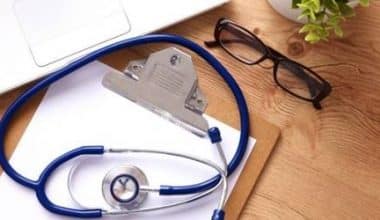Product Liability insurance covers your legal expenses when you sell a product. It protects your business distribution and sales from any claim of defective products or damage. However, it is important to consider; the cost of product liability insurance and how it covers your small business If you are a small business owner. This post covers basically, all of these and more.
What Is Covered by Products Liability?
Product liability insurance pays the legal expenses that may otherwise lead to substantial hardship. In addition, the insurance covers medical expenses, compensatory damages, and commercial losses.
What Are the 3 Types of Product Liability Claims?
These are problems with how the product was made, how it was designed, or how it was sold, which is also called a failure to warn.
Product Liability Insurance Cost
The cost of product liability insurance varies, depending on the risk of each type of product. For example, you cannot compare the risk factor of a pistol or gun with that of a book. However, the amount of revenue the product generates is a result of the risk factor of the product. How the consumers market the product and safety measures in place.
The average cost of product liability insurance for products in a low-risk category is $0.25 per each $100 in revenue. For instance, if you sell $500,000 worth of goods each year; your premium costs would be $1,250 (or 0.0025 * $500,000).
Your actual costs could be higher or lower depending on the type of product you design, manufacture, or sell. And also the annual revenue you generate for your business. If their costs of business increase, the insurers will likely increase everyone’s compensations to make up for the shortfall.
However, your premium may rise or fall because of changes in business or personal circumstances. However, it is important to update your insurers on any changes that might affect your compensations and your claims.
Factors That Affect the Cost of Product Liability Insurance
Some factors may affect the cost of your products liability insurance they include:
#1. Type of Product
The amount you pay for your product liability insurance depends on what type of products you sell. The higher the risk, the more you’ll pay. For instance, caretakers, construction workers, and manufacturers often have some of the highest rates for general liability insurance. This is because they deal with people’s property and can even cause damage to people’s property. Your liability risk matters as well. For instance; a third party’s risk to incur liability injury is greater for a business that performs security services. Also for a business providing accounting services.
#2. Replacement Value
Here Insurers use a base value for the replacement costs, which might be completely different from your idea of how much it will cost to replace your car, motorbike, or home. Often you can ensure your property for either a predetermined value or for its market value; each option generally has different liability insurance, depending on the risk to the insurer.
#3. Location/Position of Your Supply Chain
Inflation is another big factor in the cost of product liability insurance. For instance, if the government increases tax payments; industries, natural disasters, and regional or global markets increase their claims in the insurance industry.
Manufacturers stand to lose substantially more than the company selling their product. The rates are higher for manufacturers because they are liable for faulty designs and products that produce malfunctions. In contrast, sellers are responsible for sales-related damages and how to use their products.
#4. Coverage Limits
The more the coverage the higher the compensations. The amount of risk the insurer takes by issuing an insurance policy will affect the coverage. If the risk is too high, they may refuse to issue a policy; or set the premiums and excess payments high enough to offset this risk. But this usually does not occur. A good adviser will give prudent information about your coverage options.
#5. Claim History
Your previous claims will increase rates. Here the insurance company will look at your previous claim history if you have any at all. When your history shows that someone has sued you several times; for not providing a sound service to your clients; or that your delivery drivers have encountered a series of accidents. They will likely charge you higher for your auto policy. And as well if all drivers on the policy had a clear driving history.
What Costs Does Product Liability Insurance Cover?
product liability insurance costs help cover the following costs associated with an injury or property damage claim. They include:
- Your legal fees.
- Settlements and court-ordered judgments payment to the injured party.
- Medical bills of the injured party.
- Loss of or damage to property as a result of your faulty product
- Unforeseeable circumstances such as product faults that your quality control system could not identify
What Does Product Liability Insurance not Cover?
Product liability insurance does not cover the following
- Faulty products resulting from bad workmanship
- Financial losses to a business or person because of your faulty product
- The products are faulty when they were supplied to you
- Adequate customers safety instructions and warnings about misuse
- Inclusion of terms and conditions for the return of faulty goods to the manufacturer
- Good quality control and record-keeping systems instructions to your customers
What Are the 5 Elements That Must Be Proven in a Products Liability Claim?
The merchandise resulted in your injury. The product that caused your injury was faulty. The product’s flaw is what caused your injuries. The product was utilized in accordance with its intended purpose.
Product Liability Insurance for Small Business
Product liability insurance protects a small business from claims of property damage and bodily injury. It provides compensation coverage for any damage to property depending on the implied policy of your insurer. As a small business owner, you will be legally responsible if you damage a person’s property. So, you have to be careful while visiting your business, company, or store to prevent unwanted damage. However, if your business is responsible for any damage in someone’s small business; The Product liability insurance would pay for the loss of wages in the small business.
Moreover, your small business will be able to maintain financial stability if a customer sues you. So if you are a small business owner you will need a product liability insurance policy for your business coverage. This is not legally required, but a business that does any of the following product-related activities should consider purchasing it:
- Manufacturing.
- Distributing.
- Wholesaling.
- Importing.
- Retailing.
- Installing.
- Repairing/modifying.
- Health care
How to Buy Product Liability Insurance
Insurance companies usually include product liability insurance with a general liability policy. You can purchase product liability coverage as part of a general liability insurance policy. This basic level of product liability insurance may cover companies with low product risk and small businesses too. However, Product liability insurance covers damages related to your products or completed services. That’s why manufacturers, retailers, and contractors need both coverages. But some retailers or manufacturers may need to buy this coverage outside of their general liability policy.
In purchasing the product liability insurance, you will have to check with your insurer to make sure your general liability policy includes your product liability insurance. When you purchase a policy, you’ll get a certificate of liability insurance as proof of your insurance.
If you already have general liability insurance, automatically product liability protection will be in your coverage. A commercial general liability insurance policy protects business owners if there is any claim on one of their products. But if your product liability risks are significant, you should consider buying additional product liability insurance coverage. You may also need separate coverages, like product recall insurance, to cover other product-related risks. A licensed insurance agent can help you find insurance for your business. Or you can call an insurance company and talk to a representative.
Secondly, you can purchase a standalone product liability insurance policy. A standalone policy would be appropriate for a company with a high risk of product liability. Product liability insurance comes through a general liability insurance policy. Also, you can get it through a standalone policy.
What Do You Consider When Purchasing a Product Liability Insurance
#1. Choose the Right Coverage Limit
It is important to select the appropriate coverage limit as well as the suitable coverage environment. That is the geographic area an insurance policy will cover. But in the case of a covered claim having the right coverage limit. This will determine how much the insurance company will cover; and how much the small business owner will have to pay out of pocket.
#2. Know Your Coverage Environment
The policy that covers the environment can affect you whether a claim or not. If you can use the products in any location. Then the small business should consider a worldwide coverage.”
The location makes a difference. If a product is still in process or prices within a particularly antagonistic region, there is a greater likelihood they will sue the company. Be aware of contract requirements. Some vendor contracts may require a small business to have specific coverage limits in place to cover any claims or losses for which they may be a response
What Damages Are Recoverable in Products Liability Cases?
Damages for pain and suffering, mental anguish, physical disability, and loss of enjoyment of life are common types of noneconomic potential damages in product liability lawsuits, along with medical expenses, lost income, and diminished earning potential.
FAQs
Why do you need product liability?
Product liability can protect against property damage or personal injury claims arising out of the use of a business’s product, or the failure of a product.
What is Professional Indemnity insurance Singapore?
Professional Indemnity Insurance helps protect professionals against legal liability for breach of professional duty in the conduct of their professional business practice.
What's the difference between public and product liability?
Public liability insurance reacts in circumstances in relation to the delivery of your services. While products liability reacts in circumstances in relation to products you have manufactured, supplied, or sold.
What insurance do I need for selling products?
Businesses that create, manufacture, distribute, and sell products should consider product liability insurance. This type of coverage protects your business from costs if a product doesn’t work properly and causes harm to a third party.
Related Articles
- General Liability Insurance Policy: For Businesses
- What is Liability Insurance: Types and Coverages for Your Business
- General Liability Insurance Coverage: Definition, Coverage for Small Business and Contractors
- Business General Liability Insurance Cost: Factors That Limit Its Cost
- GENERAL LIABILITY INSURANCE: Coverage & Quotes For Your Business
- Property and Casualty Insurance: What it Covers
- Insurance License California: How to Get Insurance License in California
- Bicycle Insurance: Best Cyclist Insurance 2022 (Updated)






